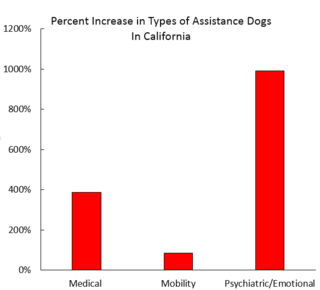Can All Therapists Sign An Emotional Support Animal Letter
A couple of weeks ago, I saw a adult female endeavor to sneak her picayune terrier on to an airplane. My married woman and I were standing at the tail terminate of the line of passengers boarding a United Airlines flight out of Newark.
I wasn't paying much attention to the woman ahead of me until I heard the gate attendant say, "Hey, is there a dog in that bag?" The adult female said, "Oh, she's my emotional support brute." The gate attendant said, "I don't think there are whatever emotional back up animals approved for this flight. Please bear witness me the letter from your medico." Then, I noticed a pocket-sized "Emotional Support Domestic dog" bluecoat attached to her bag. It was a pet travel carrier disguised as a purse.
The woman whipped out a legal-looking piece of paper that I recognized equally coming from one of the many online companies that sells phony certificates for service and back up animals. These documents are a scam. In the U.s., in that location is no federally recognized certification process for emotional support animals.
The gate bellboy didn't buy the bogus certification papers. She informed the adult female that according to United Airlines policy, travelers who request free air travel for emotional support animals are required to provide a letter from a mental health professional person testifying that they demand the creature to convalesce a recognized psychiatric disorder. Further, she needed to have notified the airline 48 hours in advance of the flight.
The gate attendant was insistent. "I volition need to see your letter earlier you can get on the plane," she said. The simulated-support-dog-lady whimpered, "But the United Airlines gate person in San Francisco said I would non have any trouble getting my domestic dog on this flying."
Things were getting tense. Conspicuously, the gate attendant knew she was beingness gamed, merely she was in a tough situation. Technically, she should follow the rules and not permit the adult female and her domestic dog on the aeroplane. However, making scene over a cute little aid dog would not be skillful for the airline's paradigm. And the plane was set to take off. Notwithstanding, I was hoping the gate attendant would stand her ground and refuse to permit the woman and her dog board the plane.

Source: Photo by Hal Herzog
That's not what happened. The gate attendant rolled her eyes and told the woman to go alee and take her dog on the aircraft. But she warned, "At present yous know the rules. Don't always practice this over again." Sure.
I had the feeling that the gate attendant had been through this routine many times before—as had the woman with the bogus support dog. Hither is motion-picture show of the woman and her canis familiaris. I snapped it with my phone at the baggage merits after the plane landed. I expect this scenario plays out every mean solar day in American airports.
The Fake Emotional Back up Animal Trouble
If you think you are seeing an increasing number of animals sporting "service domestic dog," "therapy dog," or "emotional back up animal" vests, yous are correct. Researchers from the Academy of California at Davis recently examined changes in the types of assistance dogs registered past animal control facilities in California between 2000 and 2002 and a decade after, from 2010 to 2012.

Source: Graph past Hal Herzog
They found that the number of animals used for psychiatric services and emotional back up had increased ten-fold, much faster than medical or mobility-trained assistance dogs (here).
Federal regulations governing the legal status of "emotional support animals" are particularly loosey-goosey. Dissimilar a "service dog," an emotional back up fauna can be a fellow member of any species, does not take to be trained to exercise anything, and can be your personal pet. Just if you want your parrot or poodle officially recognized equally an emotional support creature so you lot can score a gratuitous plane ride or access to no-pets housing, you lot have to exist nether handling for a mental disorder. And you must obtain a letter from a physician or licensed mental wellness professional certifying the beast is necessary for your mental health or treatment for your psychiatric condition.
In that location are a couple of ways you lot can get one of these messages. The wrong way is to purchase it from a artificial outfit similar CertaPet. I took their free initial screening which consisted of nigh 10 questions. The skilful news is that I was informed that I was an excellent candidate to have my true cat Tilly certified equally my emotional back up animal. The bad news was I would have to pay $159 for the letter.
The correct way, on the other manus, is to obtain an emotional support animal letter of the alphabet from the dr. or therapist who is treating you. A recent commodity, nonetheless, in the periodical Professional Psychology: Research and Exercise suggests that that therapists who provide emotional support animal letters for their patients are treading murky upstanding waters. The lead author of the commodity was University of Missouri psychologist Jeffrey Younggren, past chair of the Ideals Committee of the American Psychological Association.
The Therapist'south Dilemma
Psychotherapists are increasingly being asked by their clients for letters that will allow their pets access to air travel and no-pets housing. Younggren and his colleagues debate these requests pose upstanding issues for mental wellness professionals.
Emotional support animals are supposed to be office of a treatment plan. However, the authors maintain that the therapeutic benefits of these animals are unclear. Despite media headlines extolling the curative powers of dolphins, dogs, horses and Republic of guinea pigs, there is piddling evidence of the long-term effectiveness of emotional back up animals for the treatment of mental problems. Indeed, it is possible that they can sometimes accept an enabling function which actually prolongs an individual'southward psychological issues.
The authors likewise fence that requests for emotional support animal letters pose a conflict of interest between therapist and patient. Younggren and his colleagues believe that the job of writing a alphabetic character that will entitle a patient's pet for a yr'south worth of gratis air travel requires an authoritative determination that can actually interfere with the therapeutic process.
My friend Helen is a psychotherapist who has run into these problems. One of her clients was a 40-something business executive who traveled ofttimes as part of her chore. The woman had recently acquired a small canis familiaris and asked Helen for an emotional back up animal letter of the alphabet so her dog could accompany her on business organization trips.
As her client suffered from feet, Helen investigated the legal criteria for emotional back up animals and for testify that the presence of a dog would facilitate the therapeutic process. Later on examining the Federal guidelines, Helen was not convinced that taking the canis familiaris on business trips was a legitimate aspect of her client's treatment plan. So she told the woman that she could not provide the letter of the alphabet. The client was quite unhappy with the decision. And Helen felt that she had been put in a hard situation which could have resulted in serious disharmonize with her patient, and peradventure, termination of therapy.
In order to avoid these types of conflicts of interests between therapists and their clients, Younggren suggests that clinicians refuse to write any emotional support letters for individuals under their direct care. Rather he maintains the determination of need for an emotional support animal should be fabricated by a neutral third political party professional—another trained clinician not involved in the patient's treatment.
In the Existent World, Things Go Complicated
This sounds like expert advice. But as illustrated by another of Helen'south clients, sometimes y'all have to make exceptions. This client was a woman who was applying for acceptance into government subsidized housing. She was poor and had frequent epileptic seizures. She lived with her son who was severely disabled. She was depressed and she felt terribly isolated. And her best friend was a canis familiaris. While the flat had a no-pets policy, the manager said he could brand an exception if her therapist would provide a letter saying her dog qualified as an emotional support fauna. This time Helen wrote the letter.
I was confused.
"Helen," I asked, "Why did you write the letter of the alphabet for this woman but non for the business executive you were treating for anxiety?"
Her answer was simple. "Writing the letter of the alphabet was just the correct matter to practise. Her canis familiaris was her only link to the world. She had no other reason to live."
Sounds right to me.
Mail Script
Despite their conflict over the emotional support letter, the business executive continued her therapy sessions with Helen. Helen taught her a series of behavioral techniques including relaxation grooming and breathing exercises which enabled her to overcome flight anxiety. And the adult female was ultimately glad that she did not have to bring her domestic dog along for emotional support every time she boarded an aeroplane.
Source: https://www.psychologytoday.com/ca/blog/animals-and-us/201607/emotional-support-animals-the-therapists-dilemma
Posted by: worrellhavoing69.blogspot.com

0 Response to "Can All Therapists Sign An Emotional Support Animal Letter"
Post a Comment